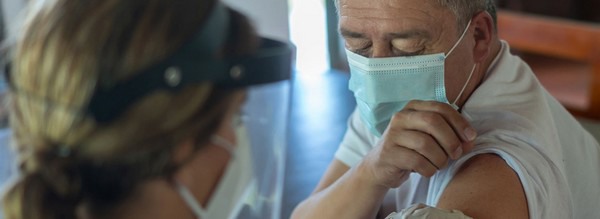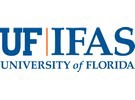About 200,000 migrant laborers live in Florida and usually get little to no health care. To help this underserved population, UF/IFAS Extension and UF Health have helped more than 400 migrant farmworkers and their families lead healthier lifestyles in the past year.
CAFÉ Latino — the Coalition of Florida Extension Educators for Latinos — and the University of Florida College of Medicine have screened laborers and their families in Wimauma (Hillsborough County) and Wauchula (Hardee County) for cholesterol, diabetes, and other health issues.
They’re heading back to Wimauma from 1 p.m. to 5 p.m. December 4, at Beth-El Farmworker Ministry, 18240 U.S. 301.
They also plan outreach to farm laborers and their families in Osceola County, though details are yet to be determined.

“Just as we’ve done all year, we hope to increase access to health care resources to help mitigate the health disparities that exist in these communities,” said John Diaz, president of CAFE Latino and a UF/IFAS associate professor of agricultural education and communication. “We will be providing health screenings and care — including vaccinations — for both adults and children. Our partners at Suncoast Clinic, Esperanza Clinic, and BayCare will provide services for our community members in addition to the screening we will be providing. There will be a slew of other folks there, helping them navigate different financial and health care aid programs.”
To get people to come to the screenings in Wimauma, UF Health and CAFE Latino provide outreach materials for community centers and churches to help get the message to the people.
During previous health fairs this year, UF/IFAS Extension faculty led by Diaz educated farmworkers and their families on how to eat healthier. UF Health faculty and students tested participants for high blood pressure, depression, diabetes mellitus, and Chagas disease.
More than 300,000 people in the United States are infected with Chagas, but less than 1% have been diagnosed, said Dr. Norman Beatty, part of the team that is leading the health screenings.
Beatty, an assistant professor of medicine in the division of infectious diseases and global medicine in the College of Medicine, is pioneering a program researching the prevalence of Chagas in Florida because at least 18,000 are estimated to be infected in the state.
“Many who are living with Chagas disease in the United States have immigrated from regions of Latin America but are unaware they have this potentially life-threatening infection,” Beatty said. “The work we are doing is helping us understand how to best reach the populations affected by Chagas as well as bring awareness to this neglected tropical disease here in the state of Florida.”
“In addition to Chagas, testing results from the Wimauma event revealed a critical – and perhaps lifesaving – outcome: Several farmworkers had uncontrolled diabetes mellitus and hypertension, including some who were undiagnosed,” Beatty said.
Diaz speaks from the heart when he talks about the health screenings.
“I am the son of Cuban refugees who consistently hear the stories and lived the difficulties that these communities are facing,” he said. “It is now time for me to give back in whatever way I can. This is just a small thing based on the huge work and support farmworkers have given all of us during both the pandemic and other times. They are making sure we have food to eat, and many times, they do not have the means to provide food for their own families.”
After successful fairs earlier this year in Wimauma and Wauchula — and with support from the UF International Center and Center for Latin American Studies — CAFÉ Latino and the College of Medicine took 15 students from across several UF disciplines to Medellín, Colombia during the summer of 2022.
There, they worked with Children Beyond Our Borders and the Universidad de Antioquia to provide health screenings and more information about how to stay healthy to hundreds of people in communities where medical care is limited.
“In Medellín, we see similar disparities that exist in the United States among vulnerable populations in need of basic health care,” Beatty said. “Our UF students were able to not only teach but learn from our local leaders and partner organizations during their trip to Colombia. This multicultural approach to learning lends itself to building stronger communities not only here in Florida but also abroad, supporting our mission as Global Gators.”
For more information: UF/IFAS
UF/IFAS
www.ifas.ufl.edu
